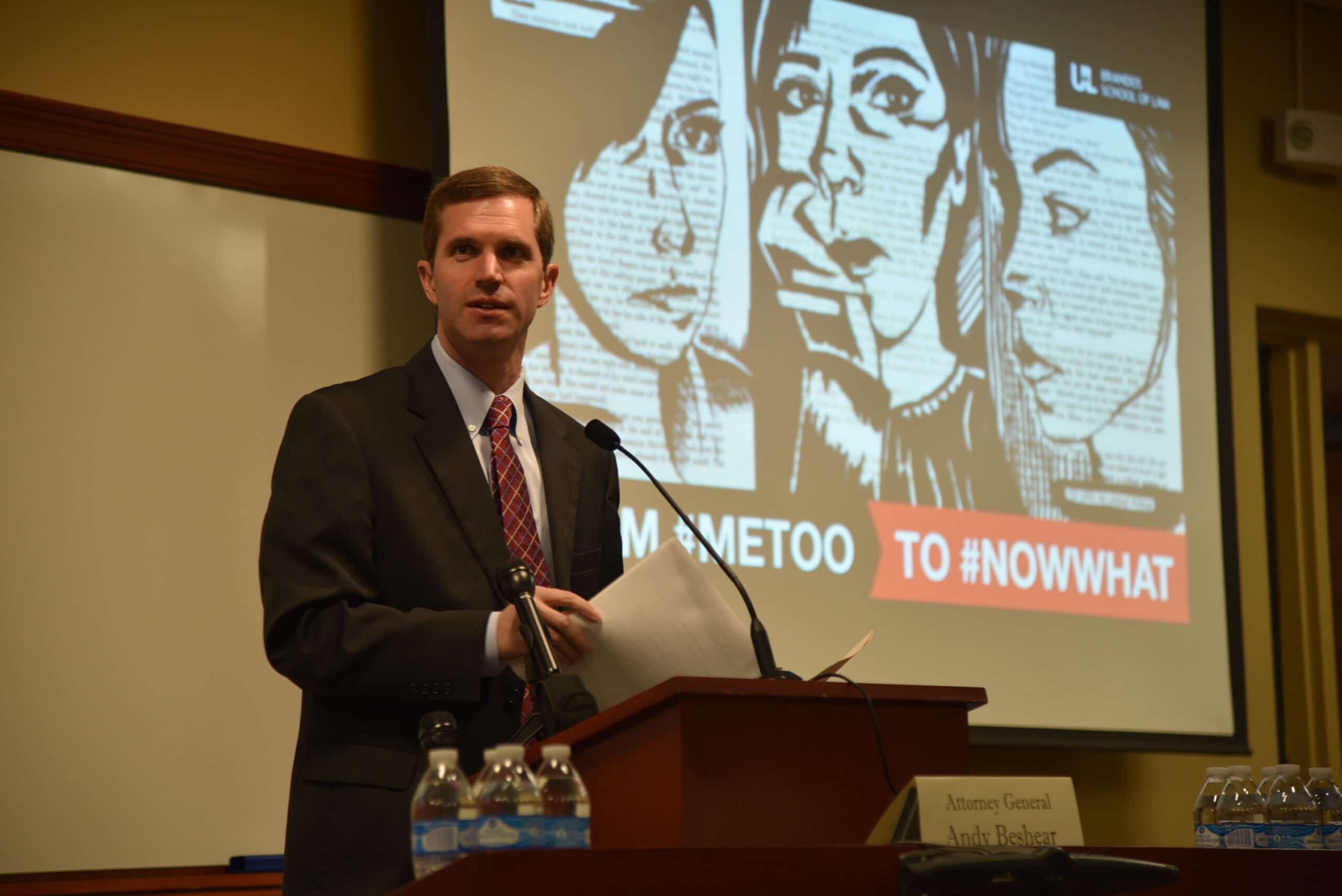By: Lyndsey Newport —
The U of L Brandeis School of Law hosted a symposium dedicated to the recent social media movement #MeToo and the reactionary sensation #NowWhat on Feb. 9.
The #MeToo movement has gained traction recently and has allowed survivors to connect and share their stories of sexual violence.
The subsequent #NowWhat movement aims to find the solution to the societal issue of gender-based crimes and workplace discrimination.
The symposium’s schedule included panels with legal experts, scholars and activists.
Discussion focused on how the criminal justice system can better assist in prosecuting aggressors and protecting victims.
The first panel talked about the way the law handles sexual harassment cases and the hardships that come with it.
Gretchen Hunt of the Kentucky Attorney General’s Office of Victims Advocacy spoke about the state’s efforts to protect victims of all forms of sexual violence.
“In the state of Kentucky, rape and sodomy are still only considered in terms of penis, vagina and anus, and fail to recognize other violations that are more common amongst women, like digital or foreign object penetration,” Hunt said. “We are trying to center the voice of survivor leaver’s and put them at the table with policymakers.”
She said an evident problem is the disconnect between men and women in the workplace.
Law professor Ariana Levinson said there are only 22 women in the U.S. Senate, and only about 21 percent of law partners are female in the U.S.
“That is due to, and causes sexual harassment,” she said.
The second panel continued with similar topics but asked what victims and advocates can do without the law to continue #MeToo’s momentum.
“It is horribly depressing knowing that almost every woman has gone through this, but there is power in numbers and change is possible,” law professor and symposium moderator JoAnne Sweeney said.
Mary Anne Franks, American legal scholar, author, activist and media commentator, presented the idea of inspiring women to take action by summarizing the importance of the #MeToo movement.
“There are definite anxieties behind the voice that women hold, and the #MeToo movement has allowed for the barriers that have held back women back for centuries to ignite change,” Franks said.
Photo by Arry Schofield / The Louisville Cardinal




